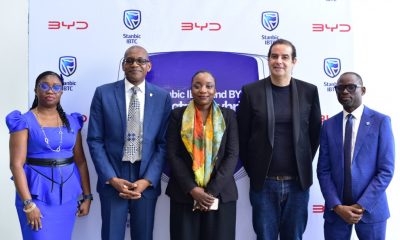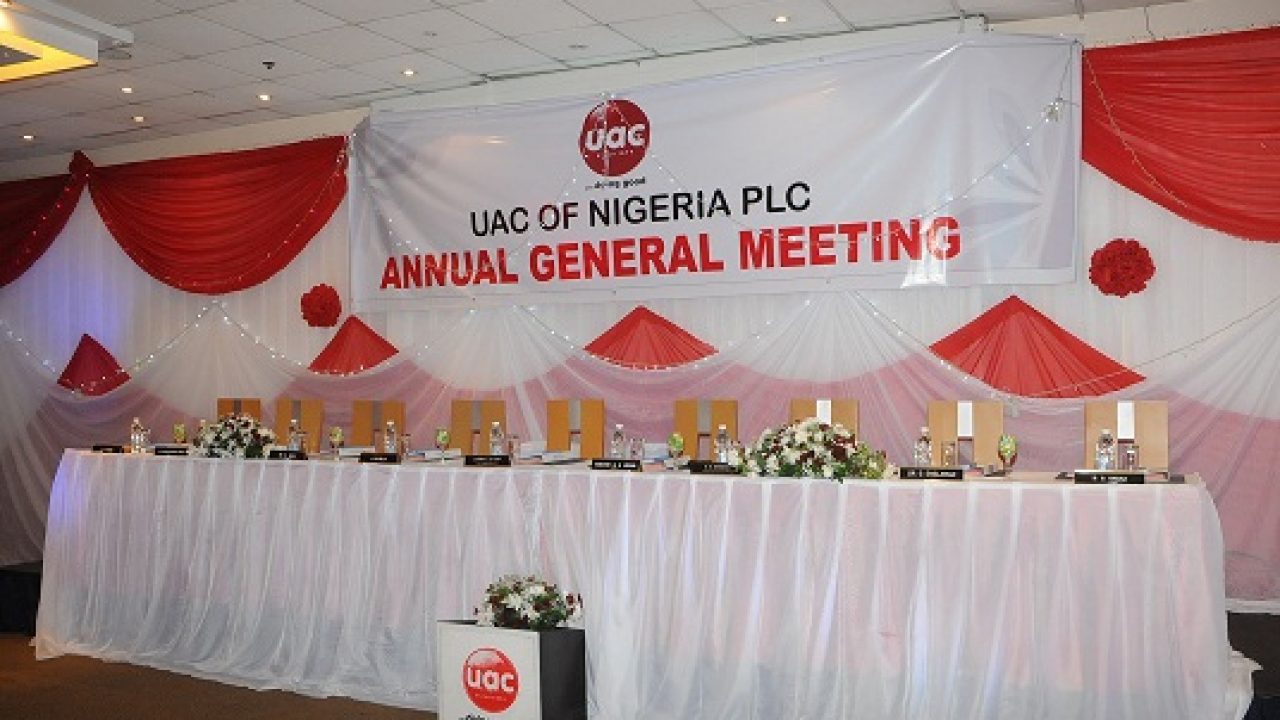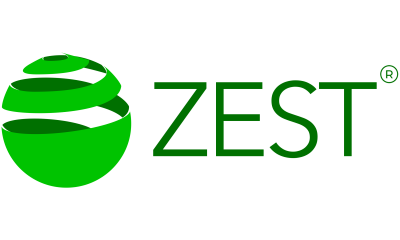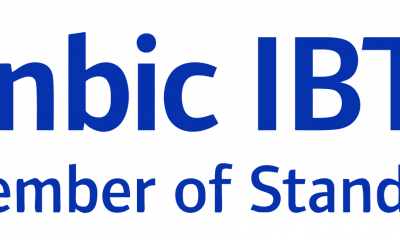Banking
KPMG Rates Stanbic IBTC Bank High in Retail, Corporate Banking
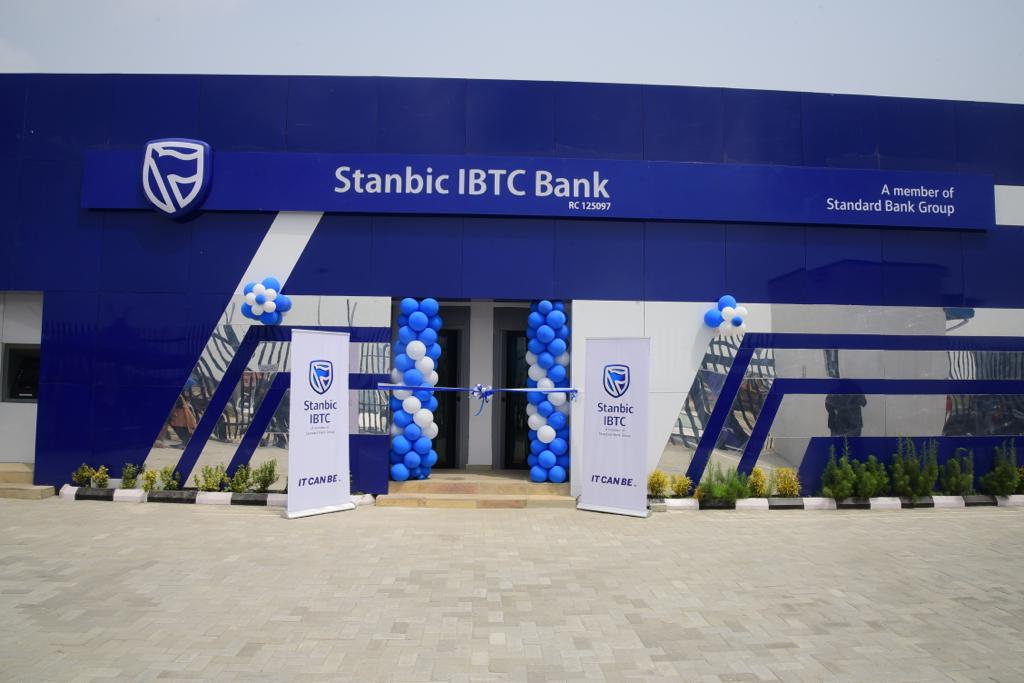
By Aduragbemi Omiyale
The KPMG 2022 Nigeria Banking Industry Customer Experience (CX) Survey has rated Stanbic IBTC Bank Plc high in retail and corporate banking in the country.
According to the report, Stanbic IBTC Bank occupied the first position with a 73.8 CX score out of 100 in the retail segment and sustained the leading position for the second consecutive year. Time and effort are the drivers of performance in the retail category, and the bank outperformed its peers in this regard.
Stanbic IBTC Bank, which held the top position in the retail and SME segments last year, performed well across key customer journey areas, particularly in resolution – a key area of improvement for the industry where customers rate banks on timeliness and quality of feedback on issues as well as the ability and ease of reporting issues and concerns.
Other customer journey areas where Stanbic IBTC Bank came tops included discovery – the ease of getting information about the bank coupled with professional and friendly staff, the ease of account opening with digital-only options and the speedy onboarding process.
Stanbic IBTC Bank is among the top three in transacting – accessibility, timeliness, and quality of service from physical and digital channels, and in account maintenance which covers requests for account statements, general enquiries and updates to account information with accuracy and completeness.
Moving up five places compared to last year’s report, Stanbic IBTC Bank also emerged as this year’s leader in the corporate segment with an 80.9 score out of 100 and received great feedback on the depth of their relationship managers’ knowledge in key sectors.
The report also revealed that Stanbic IBTC successfully closed the gap in digital banking, emerging as a clear leader in the industry.
Speaking on these achievements, the chief executive of Stanbic IBTC Bank, Mr Wole Adeniyi, said, “The primary goal of the bank is to forge lasting relationships with its clients by offering timely, creative, and valuable solutions that benefit them. We are fully committed to serving Nigerians with top-notch financial services.”
According to Mr Adeniyi, “2022 has been remarkable for us at Stanbic IBTC. Asides from these good standings revealed by the KPMG report, the globally renowned credit rating agency, Fitch Ratings, also reaffirmed the retention of our National Long-Term ‘AAA (nga)’ and National Short-Term ‘F1+(nga)’ ratings for the Stanbic IBTC Group and Stanbic IBTC Bank respectively.”
“The National Long-Term ‘AAA (nga)’ and National Short-Term ‘F1+(nga)’ Ratings are the highest possible ratings on Fitch’s rating scale, and we were rated high based on the potential support from our parent company, Standard Bank Group, based in South Africa. We play a vital role in Standard Bank Group’s main operations in West Africa, and we retained our ratings based on our size and high operational integration,” he added.
Fitch Ratings assessed Stanbic IBTC’s strategic importance as the holding company for Standard Bank Group’s leading corporate and investment banking (CIB) and wealth businesses in Nigeria and Stanbic IBTC Bank’s position as an integral part of its Nigerian operations. It also considered Standard Bank Group’s controlling ownership of Stanbic IBTC, high integration of risk management, operations and strategy, shared branding, and Stanbic IBTC’s moderate contribution to Standard Bank Group’s net income.
The ‘AAA (nga)’ is given to issuers with the lowest expectation of default risk when compared with their competitors. The National Short-Term Rating of ‘F1+(nga)’ is assigned to issuers that have a strong capacity for timely payment of financial commitments in comparison to other issuers in Nigeria.
Mr Adeniyi noted that the organisation’s competitive position, good risk profile, healthy funding, and liquidity position also facilitated its upgrade in the Global Credit Ratings (GCR). The national scale long-term issuer rating assigned to Stanbic IBTC Bank PLC was upgraded to AAA(NG) from AA+(NG) and the national scale short-term issuer rating was A1+(NG), indicating a stable outlook and making Stanbic IBTC Bank the only financial institution in Nigeria with the rating.
He attributed the astounding performances of the organisation to the dedication and hard work of its workforce and the tenacity of the firm to continue to play vital roles in Nigeria’s economic development, stating that Stanbic IBTC would not relent in developing sustainable solutions that ensure customers’ delight and the company’s success in the Nigerian financial services spectrum.
Banking
Public Offer: Sterling Holdco Allots 13.812 billion Shares to 18,276 Shareholders

By Aduragbemi Omiyale
Sterling Financial Holdings Company Plc has allotted shares from its public offer of 2025 to investors with valid applications.
The allotment follows the earlier receipt of final approval from the Central Bank of Nigeria (CBN) and the recent clearance by the Securities and Exchange Commission (SEC).
In September 2025, the financial institution offered for sale about 12,581,000,000 ordinary shares of 50 kobo each at N7.00 per share in public offer.
However, the exercise received wide participation from the investing public, with the company getting 18,280 applications for 16,839,524,401 ordinary shares valued at approximately N117.88 billion.
Following a thorough verification process, valid applications were received from 18,276 shareholders for a total of 13,812,239,000 ordinary shares, representing a subscription level of 109.79 per cent and reflecting sustained confidence in Sterling Holdco’s strategic direction, governance, and long-term growth prospects.
The firm approached the capital market for additional funds for the recapitalisation of its two flagship subsidiaries, Sterling Bank and The Alternative Bank.
The capital injection will support the commencement of full operations and contribute to the group’s revenue diversification objectives.
In line with the guidelines set out in the offer prospectus, Sterling Holdco confirmed that all valid applications will be allotted in full. Every investor who complied with the terms of the offer will receive all the shares for which they applied.
A very small number of applications were not processed or were partially rejected due to non-compliance with the offer terms, including duplicate payments and failure to meet the minimum subscription requirement of 1,000 units or its multiples, as stipulated in the offer documents.
The group ensures a seamless post-offer process, with refunds for excess or rejected applications, along with applicable interest, to be remitted via Real Time Gross Settlement or NIBSS Electronic Funds Transfer directly to the bank accounts detailed in the application forms.
Simultaneously, the electronic allotment of shares has be credited to successful shareholders’ accounts with the Central Securities Clearing System (CSCS) on February 17, and for applicants who do not currently have CSCS accounts, their allotted shares will be temporarily held in a registrar-managed pool account pending the submission of their completed account opening documentation to Pace Registrars Limited, after which the shares will be transferred to their personal CSCS accounts.
Banking
CBN Governor Seeks Coordinated Digital Payment Reforms

By Modupe Gbadeyanka
To drive inclusive growth, strengthen financial stability, and deepen global financial integration across developing economies, there must be coordinated reforms in digital cross-border payments.
This was the submission of the Governor of the Central Bank of Nigeria (CBN), Mr Olayemi Cardoso, at the G‑24 Technical Group Meetings in Abuja on Thursday, February 19, 2026.
According to him, high remittance costs, settlement delays, fragmented systems, and heavy compliance burdens still limit the participation of households and Micro, Small and Medium Enterprises (MSMEs) in global trade.
The central banker emphasised that efficient payment systems are essential for economic inclusion, highlighting that global remittance corridors still incur average costs above 6 per cent, with settlement delays of several days, excluding millions from modern economic activity.
Mr Cardoso cautioned that while digital payments present significant opportunities, they also carry risks such as currency substitution, weakened monetary transmission, increased FX volatility, capital-flow pressures, and regulatory fragmentation.
The G-24 TGM 2026, themed Mobilising finance for sustainable, inclusive, and job-rich transformation, convened global financial stakeholders to advance the modernisation of finance in support of emerging and developing economies.
The CBN chief reaffirmed Nigeria’s commitment to working with G-24 members, the IMF, the World Bank Group, and other partners to build a more inclusive, resilient, and development-oriented global financial architecture.
“We have strengthened our AML/CFT frameworks in line with FATF guidelines, requiring strict dual-screening of cross-border transactions to mitigate risks.
“To deepen regional integration, the CBN introduced simplified KYC/AML requirements for low-value cross-border transactions to encourage broader participation in PAPSS, easing processes for Nigerian SMEs and enabling faster intra-African trade payments.
“We have also embraced fintech innovation through our Regulatory Sandbox, allowing payment-focused fintechs to test secure, instant cross-border solutions under close CBN supervision,” he disclosed.

Banking
Unity Bank, Providus Bank Merger Awaits Final Court Approval

By Modupe Gbadeyanka
The merger and business combination between Unity Bank Plc and Providus Bank Limited remains firmly on course, a statement from one of the parties disclosed.
According to Unity Bank, there is no iota of truth in reports in certain sections of the media suggesting that the merger process had stalled, as the transaction remains firmly on track.
It was disclosed that the necessary regulatory steps have been completed, but only a few other steps to finalise the transaction, especially the final court sanction.
There had been speculations that both lenders may not meet the new minimum capital requirement of the Central Bank of Nigeria (CBN) before the March 31, 2026, deadline.
However, it was noted that the combined capital base of Unity Bank and Providus Bank exceeds N200 billion, which is the minimum requirement to retain a national banking licence under the CBN’s recapitalisation framework.
When completed, the Unity-Providus merger is expected to deliver a stronger, more competitive, and customer-centric financial institution — one with the scale, innovation, and reach to redefine the retail and SME banking landscape in Nigeria.
“The merger with Providus Bank significantly enhances our capital base, operational capacity, and strategic positioning.
“We are confident that the combined institution will be better equipped to support economic growth and deliver innovative financial solutions across Nigeria,” the chief executive of Unity Bank, Mr Ebenezer Kolawole, stated.
Recall that a few months ago, shareholders authorised the merger between the two entities at Court-Ordered Meetings. They also adopted the scheme of merger at their respective Extraordinary General Meetings (EGMs) in September 2025,
The central bank also backed the merger, with a pivotal financial accommodation to support the transaction. The merger also received a further boost with a “no objection” nod from the Securities and Exchange Commission (SEC).
The regulatory approvals form part of broader efforts to strengthen the resilience of Nigeria’s banking system, reinforce capital adequacy across the sector, and mitigate potential systemic risks.
The development positions the combined entity among the 21 banks that have satisfied the apex bank’s new capital threshold for national banking operations.
-

 Feature/OPED6 years ago
Feature/OPED6 years agoDavos was Different this year
-
Travel/Tourism10 years ago
Lagos Seals Western Lodge Hotel In Ikorodu
-

 Showbiz3 years ago
Showbiz3 years agoEstranged Lover Releases Videos of Empress Njamah Bathing
-

 Banking8 years ago
Banking8 years agoSort Codes of GTBank Branches in Nigeria
-

 Economy3 years ago
Economy3 years agoSubsidy Removal: CNG at N130 Per Litre Cheaper Than Petrol—IPMAN
-

 Banking3 years ago
Banking3 years agoSort Codes of UBA Branches in Nigeria
-

 Banking3 years ago
Banking3 years agoFirst Bank Announces Planned Downtime
-

 Sports3 years ago
Sports3 years agoHighest Paid Nigerian Footballer – How Much Do Nigerian Footballers Earn






